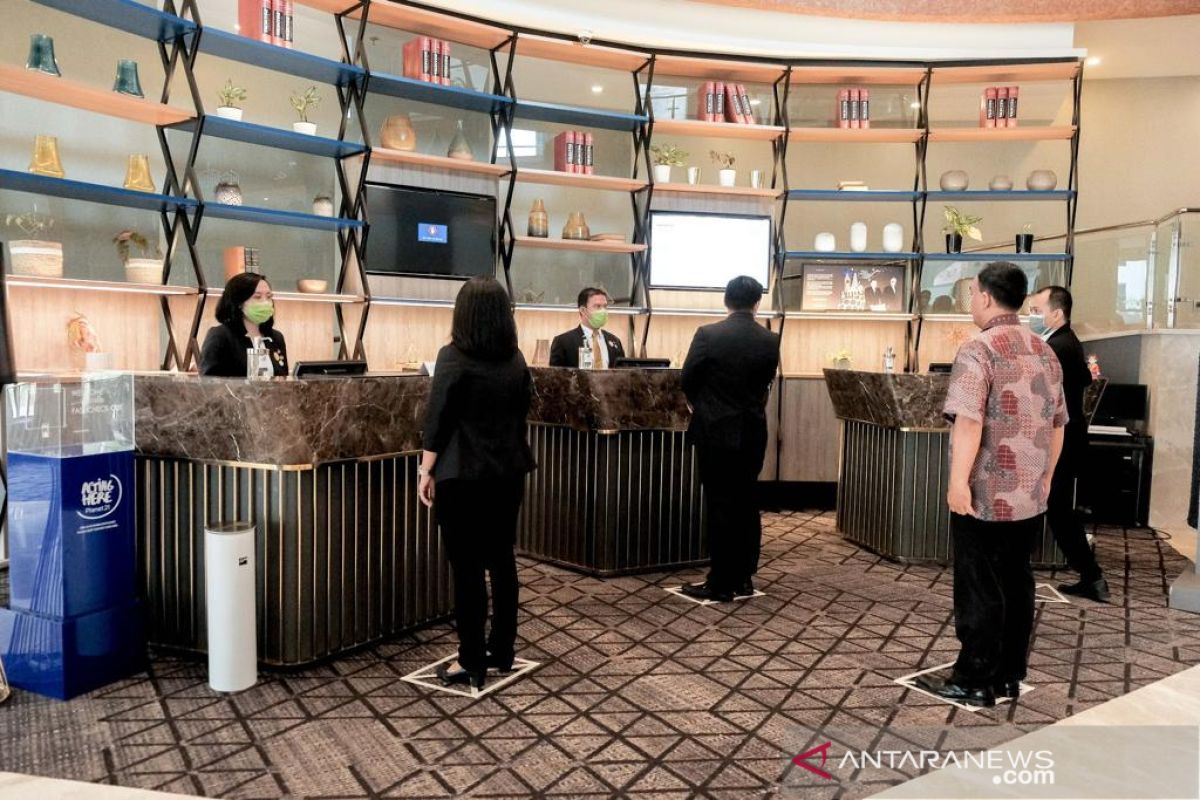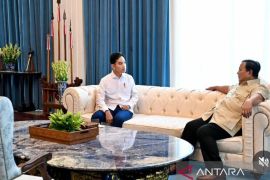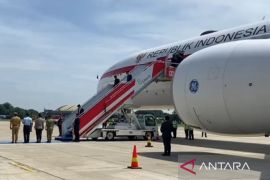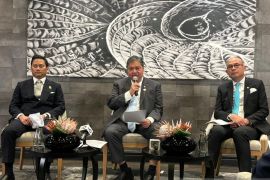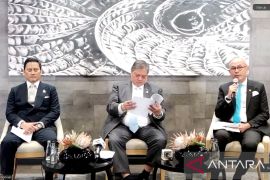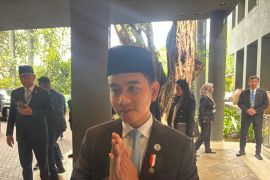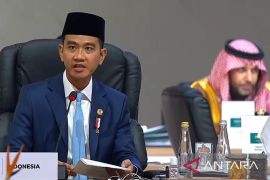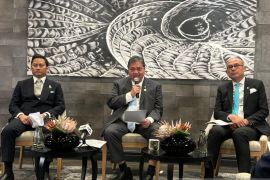The country has identified three priorities in the G20 Health Working Group (HWG), according to Dr. Siti Nadia Tarmizi, secretary of the Public Health Directorate of the Health Ministry.
The priorities are building global health system resilience, harmonizing global health protocol standards, and expanding global manufacturing and knowledge centers for pandemic prevention, preparedness, and response.
"Having learned a lesson on COVID-19 handling, Indonesia’s G20 Presidency is aimed at promoting the world to recover together and stronger in the post-COVID-19 pandemic (era). That’s the message,” Tarmizi remarked.
Hence, the country is hoping that the G20 will make a commitment to developing a mechanism to mobilize financing resources and health facilities and infrastructure, particularly for countries that cannot afford to fund COVID-19 handling.
"Indonesia has a strong foundation in gotong royong (mutual help). This will be transmitted. Under the spirit of gotong royong, it doesn't matter whether a country is capable or not, but every nation should contribute to helping each other," Tarmizi said.
Related news: G20 HWG delegates agree to harmonize global health protocols
Under Indonesia’s Presidency, G20 is scheduled to hold three meetings of HWG. The first meeting was organized in Yogyakarta from March 28 to 30, 2022.
Health Minister Budi Gunadi Sadikin said that the synchronization of global health protocols could begin with G20 countries to enable smoother application and make international travel easier.
"We can start from the G20. That way it will facilitate the adoption of this health protocol standard in other countries," Minister Sadikin said during a G20 HWG press conference on 'Harmonizing Global Health Protocol Standards' in Yogyakarta on March 28.
The measure is aimed at ensuring that there are unified standards with regard to regulations on PCR tests and quarantine, among others, which differ from country to country at present.
The minister said that health protocol standards for international travel can be changed, just like the global immigration system.
He further said he is confident that the adoption of global health protocol standards can be achieved given the current state of digital technology development.
So far, Indonesia has held bilateral discussions with Saudi Arabia to integrate PeduliLindungi with the Tawakkalna application.
Indonesia has also held discussions with ASEAN communities and a number of European countries to integrate the PeduliLindungi application so that the same regulatory standards on PCR, quarantine, and others can be applied.
That way, people can still travel around the world while adopting a healthy and cautious approach.
Minister Sadikin emphasized that each country will still have the flexibility to apply its own requirements.
Countries will have the freedom to apply rules of the health process in their country, with clear and open procedures that can be easily accessed by the whole world.
"Harmonizing global health protocol standards does not equate the procedures. Countries are still allowed to have different procedures. Our harmonization must respect the sovereignty of each country that we cannot intervene," Sadikin added.
In response, head of the Digital Health Technology Unit of the World Health Organization (WHO), Garret Mehl, said that it is possible to integrate digital health document applications.
"I might call it a health card in digital format. We could see a digital version of a vaccination card or a lab test result card, and ideally, it would be something that would be worth using if there was another pandemic," he said.
Thus, equal technological infrastructure would be important in every country for digital-based health records.
Following a discussion, delegates at the HWG meeting agreed to Indonesia’s proposal for harmonizing global health protocols.
"We have obtained an agreement from the G20 countries regarding the harmonization of health protocols and the recognition of vaccine certificates for traveling," director general of P2P at the Ministry of Health, Maxi Rein Rondonuwu, informed the press on March 29.
As part of the harmonization of global health protocols, the G20 countries will encourage digitalization for mutual recognition of vaccinations and universal verifiers.
While discussing the implementation of the digitization process, Indonesia underlined the need to resolve security and interoperability issues between countries and regions.
It is hoped that health protocol standard harmonization and COVID-19 vaccine certificate recognition at the entrance of various countries would encourage global mobility and accelerate economic recovery from the COVID-19 pandemic.
Related news: Global health protocol synchronization can begin with G20: minister
Related news: Proper COVID-19 handling guarantees more tourists: Official
Translator: Fardah
Editor: Sri Haryati
Copyright © ANTARA 2022
